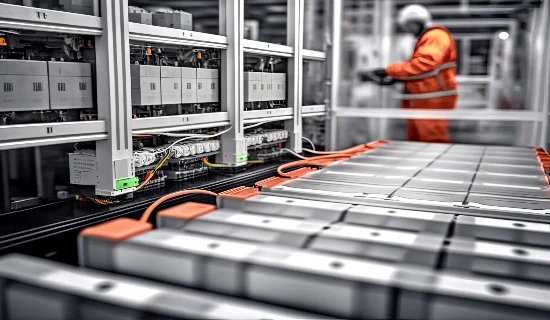The lithium-ion battery industry is experiencing rapid growth, driven by the global shift toward clean energy and the increasing demand for electric vehicles. In this evolving landscape, Morocco is emerging as a key player, attracting major industrial investments. The recent approval by the Moroccan Competition Council of the partnership between Honeywell International Inc. and Guangzhou Tinci Materials Technology Co., Ltd. is part of this broader transformation and could pave the way for new opportunities in the country.
Honeywell and Tinci have reached agreements to establish two joint ventures focused on the production and commercialization of critical lithium-ion battery materials. As part of the deal, Tinci Delaware LLC, a subsidiary of Tinci, is transferring 49% of its shares in Tinci Materials Texas LLC to Honeywell for approximately $16.66 million. Once the transaction is completed, Tinci Delaware will retain a 51% majority stake, while Honeywell will hold the remaining 49%. In addition, Tinci Materials Texas is planning the construction of a factory with an annual production capacity of 200,000 tons of electrolytes, a key component in battery manufacturing.
Simultaneously, Advanced Energy Materials LLC (AEM), a Honeywell subsidiary, will undergo a restructuring that will see Tinci Delaware acquire new shares, resulting in a 49% stake for Tinci and a 51% majority share for Honeywell. This venture comes with a $400 million investment plan to build a facility capable of producing 100,000 tons of liquid lithium hexafluorophosphate (LiPF6) per year, a crucial compound in lithium-ion batteries.
While these joint ventures are primarily geared toward the North American and global markets, their impact extends beyond those regions—particularly to Morocco. Since 2023, Tinci has committed to investing $280 million in the construction of a lithium-ion battery material production plant in Morocco. This initiative reinforces the country’s growing role in the renewable energy sector and its ambition to integrate itself into the global battery supply chain. Rather than merely exporting raw materials like cobalt and phosphates, Morocco aims to develop a full-fledged industrial ecosystem around battery technology.
Several factors position Morocco as an attractive hub for this burgeoning industry. Its geographical proximity to Europe, government-driven push for green industrialization, and rich reserves of strategic raw materials make it an appealing destination for lithium-ion battery investments. The establishment of Tinci’s factory could further encourage other international players to set up operations in Morocco, strengthening the country’s position as a key player in the energy technology sector.




